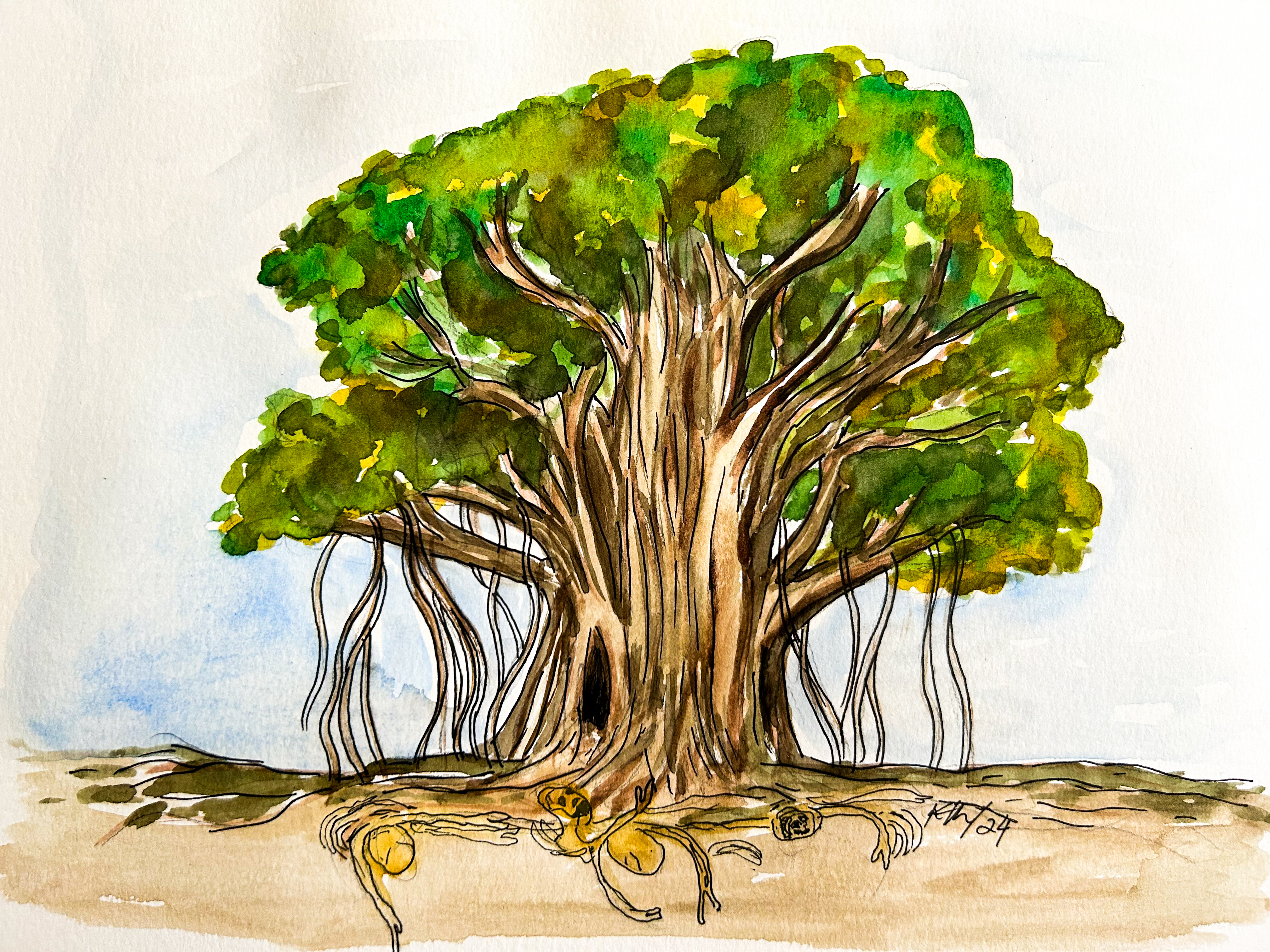Illustration by Keera Ratnam / wavesofcolour
Recent weeks have seen several senior politicians from the two leading opposition parties in the UK, reiterate the importance of ensuring Sri Lanka is referred to the International Criminal Court (ICC). Keir Starmer, the man widely tipped to become Britain’s next prime minister, called on the ruling government to push through a referral two years ago. Support for such a move has since grown. As Starmer released a statement to commemorate the Tamil Genocide, Ed Davey of the Liberal Democrats committed his party to sending Sri Lanka to the ICC, “so at long last there can be accountability for the genocide committed against Tamil people”. No matter who occupies Downing Street next month, steps must be undertaken to ensure the situation in Sri Lanka is swiftly sent to The Hague. Justice for atrocities must finally be delivered.
The ICC is the world’s highest legal body that investigates and prosecutes the gravest of crimes. The atrocities inflicted on the Tamils, which have left more than 160,000 people still unaccounted for, more than meet the threshold to demand international attention. As is being increasingly recognised, it was a genocide. But the complete failure of Sri Lanka’s domestic accountability mechanisms to hold perpetrators to account, alongside the continued unwillingness of repeated Sri Lankan governments to do so, means that only an international process gives any glimmer of hope that justice will be served. All avenues have been exhausted and the ICC is the court of last resort. For decades now, Tamil victim-survivors have demanded an urgent referral.
That call was heard not just on the island. In 2019, over 17,500 Brits signed a petition demanding Sri Lanka be referred to the ICC, prompting an official government response. At the time, the UK limply requested that faith be kept in the UN Human Rights Council process. But a further five years on from that British reply, there has been no progress. Though more resolutions are slated to be introduced in Geneva this year, after more than a decade of similar moves it has become clear to all that the Human Rights Council is toothless. Sri Lanka continues to deny that a genocide took place, whilst perpetrators including rapists and murderers, still roam free. Indeed, those accused of leading the genocide may even run for office again this year. The UN Human Rights Council process has fallen flat.
This is evident even to UN Human Rights chiefs, who have called on member states to consider referring Sri Lanka to the ICC. Though Sri Lanka is technically not party to the Rome Statute, a referral is not impossible. There are other innovative avenues that can be explored, such as how the case of Myanmar was brought to the court, for example. Sri Lanka could also be raised at the UN Security Council in New York. Even if it fails at this stage, through a Russian or Chinese veto, the fact that 15 years on from the genocide the atrocities are still being discussed at the world’s highest body would send a powerful message to Sri Lankans and beyond on the importance of accountability and justice. The massacres cannot, and should not, be allowed to be simply forgotten.
For all its flaws, the ICC is still a powerful body. As the recent request for arrest warrants on Israeli and Palestinian leaders shows, their decisions have a significant impact around the world. But, at the same time, there also needs to be movement beyond the court. A referral alone will not lead to the progress that the island desperately needs. There must be sanctions and travel bans on accused war criminals. States that value human rights and transparency must re-evaluate the bilateral trade and military ties they hold with Colombo. And there must be a concerted effort to ensure Tamil people can exercise their right to self-determination and a long-lasting peaceful solution is finally found. Only then can the abuses and violence that continue to plague the island be halted. It must be a priority for the next British prime minister, no matter which party they come from.

